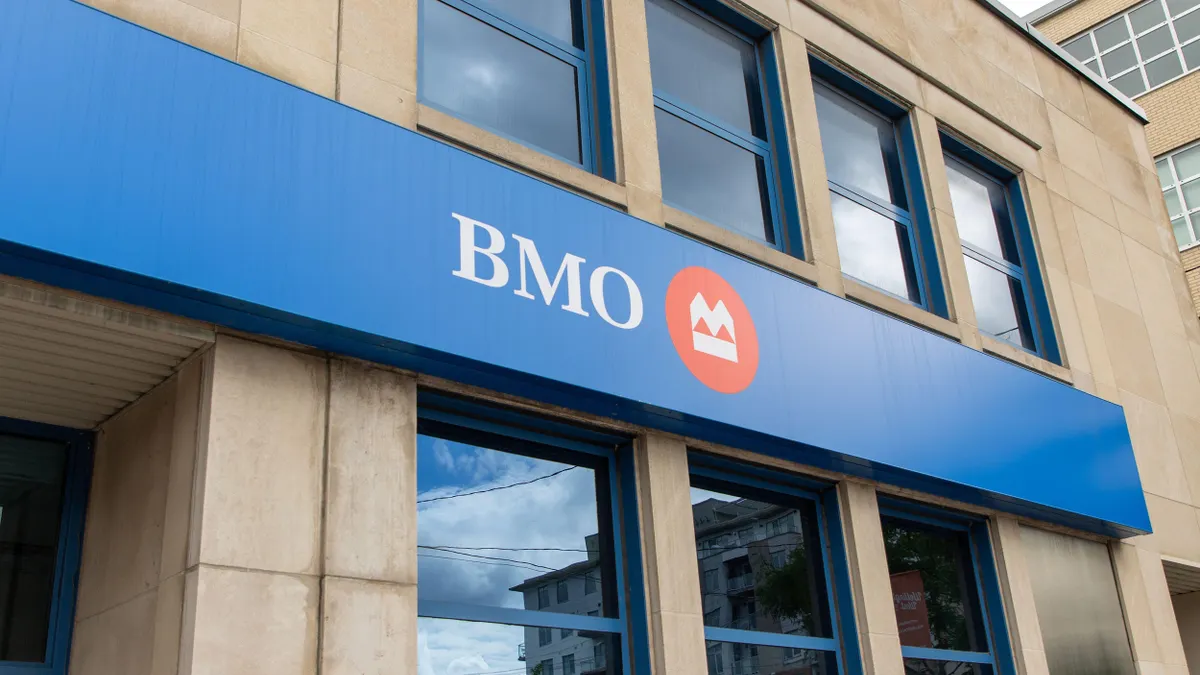Dive Brief:
- BMO’s transportation business saw relief in gross impaired loans for Q3 compared to Q2, when the measure decreased nearly 16% to CA$424 million ($306 million around the time of the release), according to investor presentations.
- Q2 marked the highest-ever gross impaired loans and formations amount for its transportation business at CA$503 million, surpassing a previous peak of CA$464 million in Q4 2024.
- "Our impaired provisions have been trending down this year in line with our expectations," Chief Risk Officer Piyush Agrawal said on an Aug. 26 earnings call. "At the same time, we remain cautious as the full impact from the current tariff announcements have yet to flow through the economy and the policy environment remains evolving."
Dive Insight:
Impairments for BMO, a key lender for the transportation industry, rose sharply in 2024, long before tariff risks from the current administration came into play.
The ongoing freight recession has walloped rates, generally caused revenues to shrink and made operations for many trucking firms unsustainable.
On the bank’s earnings call, an analyst asked if the bank could sell its transportation finance unit, noting an article suggesting M&A could occur. But executives redirected remarks from the observation.
Overall, the bank saw its gross impaired loans level rise 3% in Q3 compared to Q2.
Meanwhile, the provision for credit losses on impaired loans was CA$773 million, a decrease of CA$55 million compared Q3 2024, reflecting “an improvement in the macro-economic scenarios, as well as lower balances in certain portfolios, which were more than offset by the impact of uncertainty in credit conditions and portfolio credit migration,” an earnings release said.
PCL on impaired transportation loans decreased by 35% to CA$50 million, according to figures reported by the bank in a supplemental report.
When talking about impaired PCLs, Agrawal suggested the bank in general has passed its peak in the U.S.












